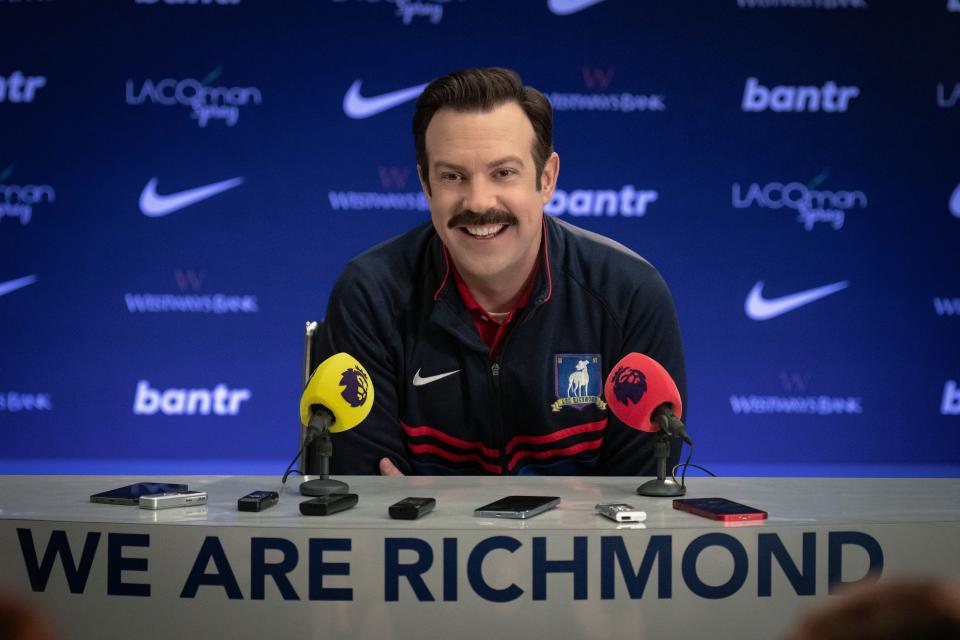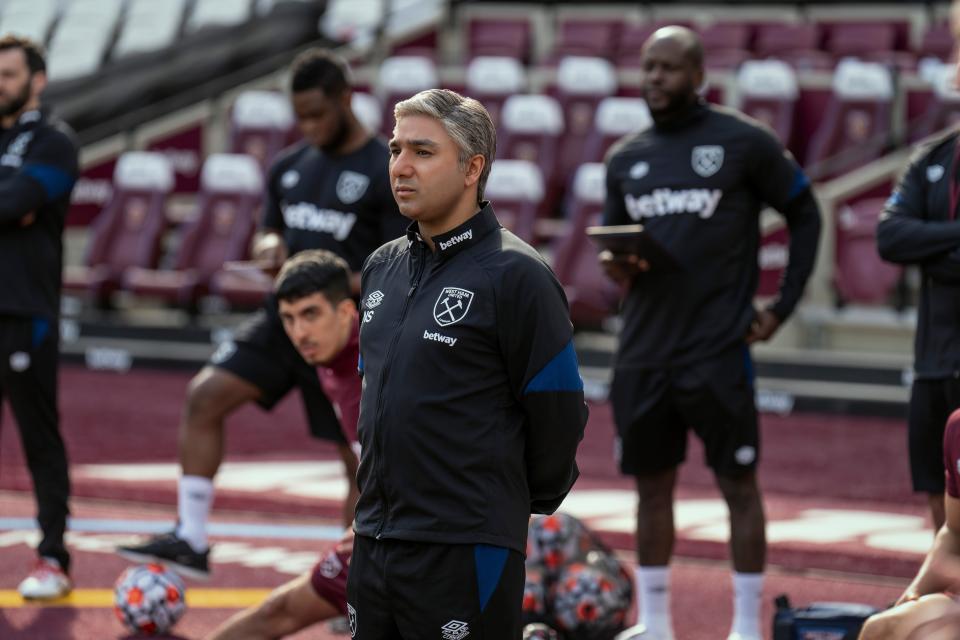Review: Don't worry, 'Ted Lasso' Season 3 will bring a bright light to your dark world
Fear not, Ted Lasso has returned.
It has been 17 months since a new episode of Apple TV+’s “Ted Lasso” streamed into our hearts and minds, although it feels like quite a bit longer. When the charming comedy about an American football coach turned manager of a British soccer team premiered in 2020, it was the height of the early COVID-19 pandemic period. Quickly, the joy and positivity that emanated from “Lasso” took on a whole new meaning.
Now “Lasso” brings its bright light back to the world for a third season at a time when its unabashed optimism and – more importantly, spirit of community – is so acutely missing from the zeitgeist.

In Season 3 (streaming Wednesdays, ★★★? out of four), “Lasso” doesn’t take a lot of big swings or narrative leaps, other than to open its arms to even more supporting characters and narrative threads. It remains reliably the same: funny, heartwarming, occasionally deep and full of romantic comedy references. That's not a bug, it's a feature, and an accomplishment just to maintain its unique tone, top-notch performances and bold physical comedy that coalesces into a tight and effervescent series. If this is the last “Lasso” season, as star and co-creator Jason Sudeikis has hinted at in some interviews, no one could accuse the writers of letting the show decline before its end.
We return to AFC Richmond after the team has returned to the Premier League, newly promoted but still predicted to finish the season dead last. Ted (Sudeikis), still recovering emotionally from his divorce and other mental health concerns, walks back into the locker room as relaxed and pleasant as ever. But everyone else is antsy: owner Rebecca (Hannah Waddingham) is now obsessed with beating West Ham, the team her ex-husband Rupert (Anthony Head) recently bought; Beard (Brendan Hunt) and Roy (Brett Goldstein) are angry at their former coaching colleague Nate (Nick Mohammed) for betraying them and Ted by going to work for Rupert; and the players just want to win. Outside the pitch, Keeley (Juno Temple) has launched her own public relations firm and is desperately anxious about her success.

"Lasso" has a crowded cast and five different subplots in any given episode, but in Season 3 many of the recurring characters have been upgraded to regulars. That includes Rupert, soft-spoken player Colin (Billy Harris) and journalist Trent Crimm (James Lance). They are all excellent additions, particularly Crimm, who joins the Richmond locker room to write a book about the team and vacillates between roles as a sardonic interloper and a bit of a girl Friday for the team.
'Ted Lasso' Season 2 review: Believe in the power of Jason Sudeikis
With all those characters kicking around, the episodes feel bloated, as the formerly half-hour series expands to almost 50 minutes an episode in the four made available for review. In spite of the extra minutes, Season 3 is missing a bigger presence: more of Ted himself. It's a loss, particularly in what was foreshadowed to be the conflict of the season, Ted vs. Nate.

But maybe it's not such a bad thing that Ted takes a bit of a back seat this year. For all the hype that the mustachioed man gets, I'd argue that he is not the reason that fans connect so deeply with the series. Or not the only reason. The show's positivity comes not just from Ted and his puns and biscuits, but from the collective energy of a supportive community. Between an isolating pandemic and our already fractured society, true community can be hard to come by. But "Lasso" gives us an almost utopian vision of what it can be like to help and support one another. A broken man can feel whole again. A diva can become a team player. Goals can be scored. Games can be won.
And that is something to believe in.
How to watch: 'Ted Lasso' Season 3
This article originally appeared on USA TODAY: 'Ted Lasso' Season 3 review: Still a bright light in a dark world
